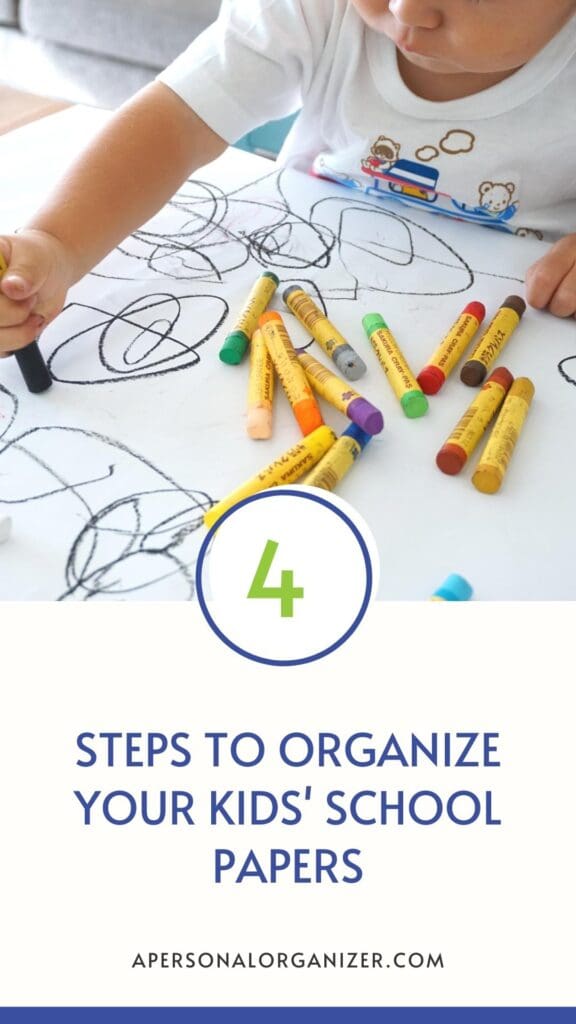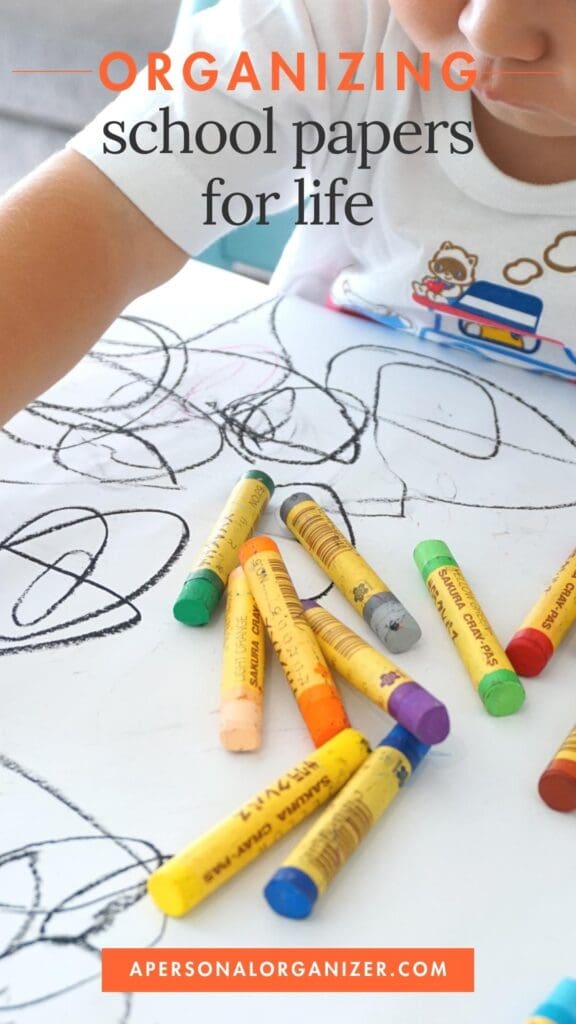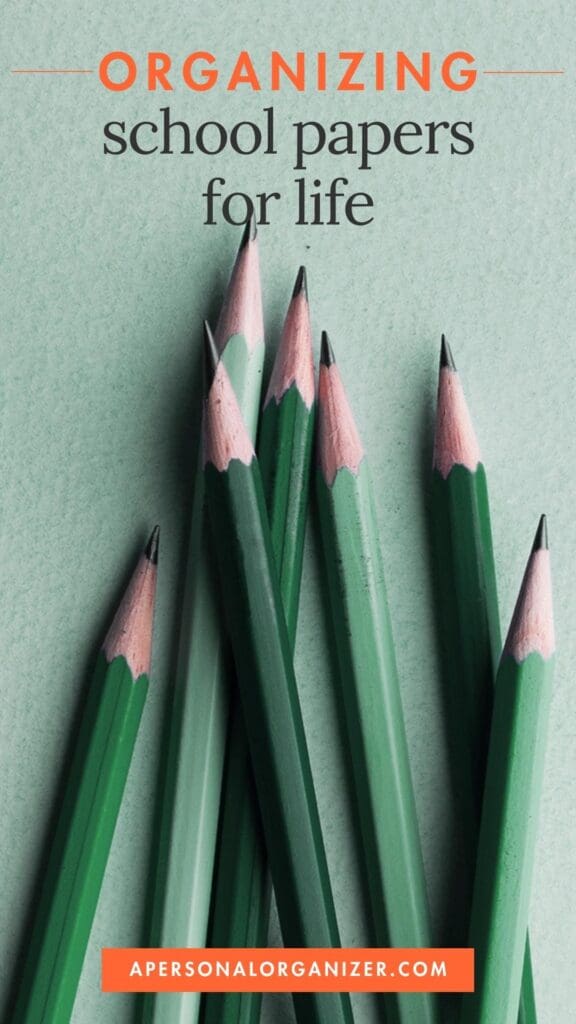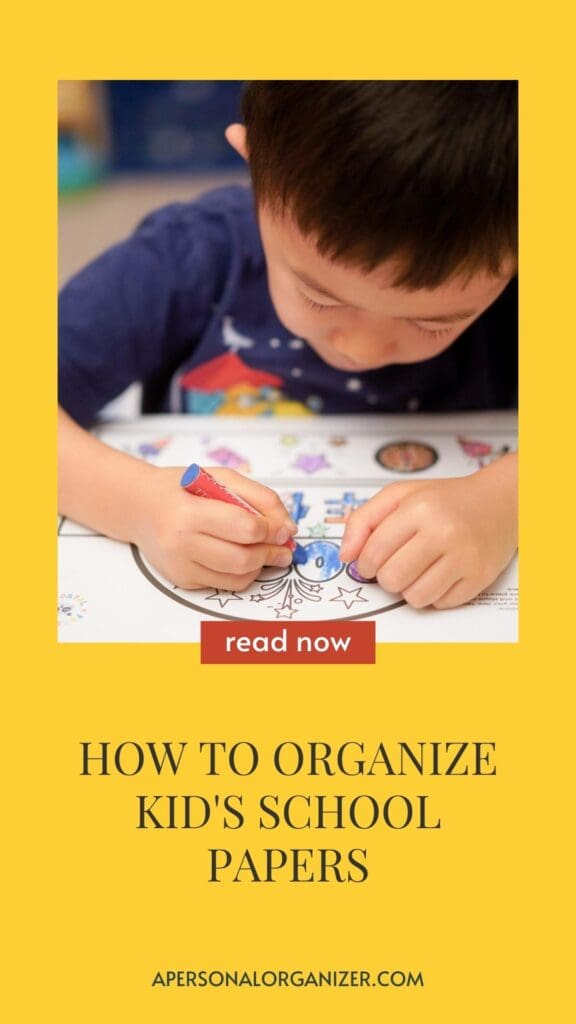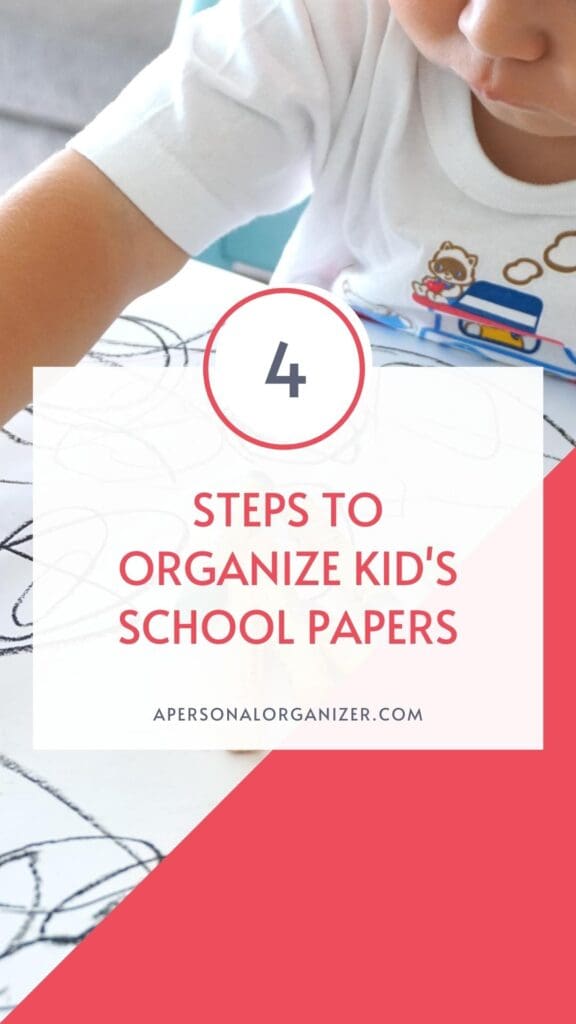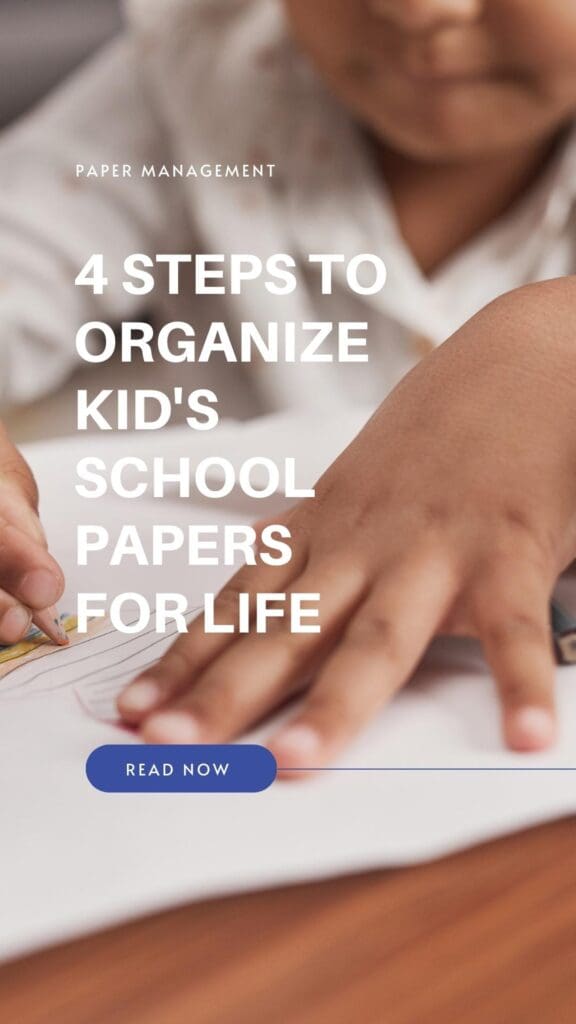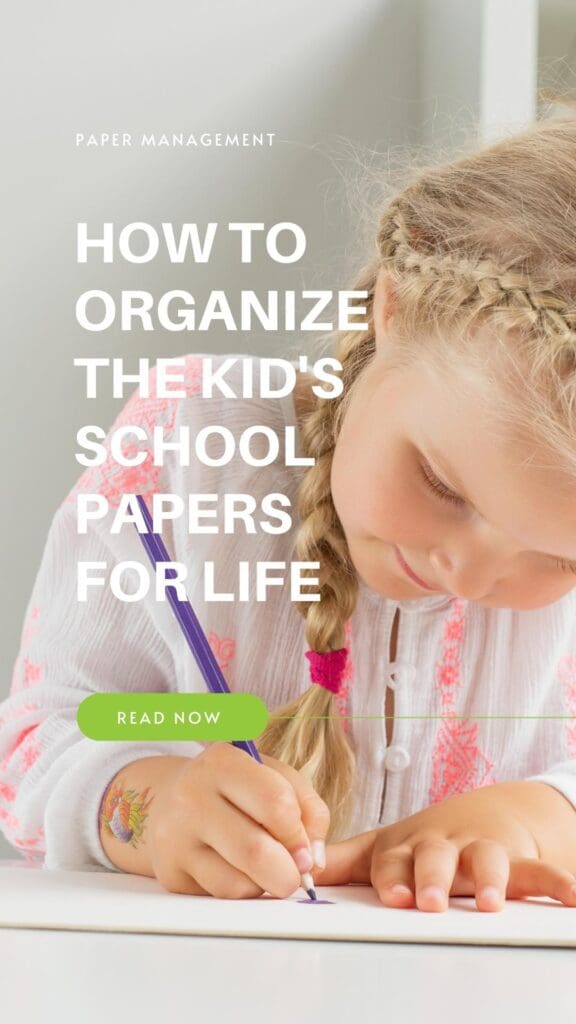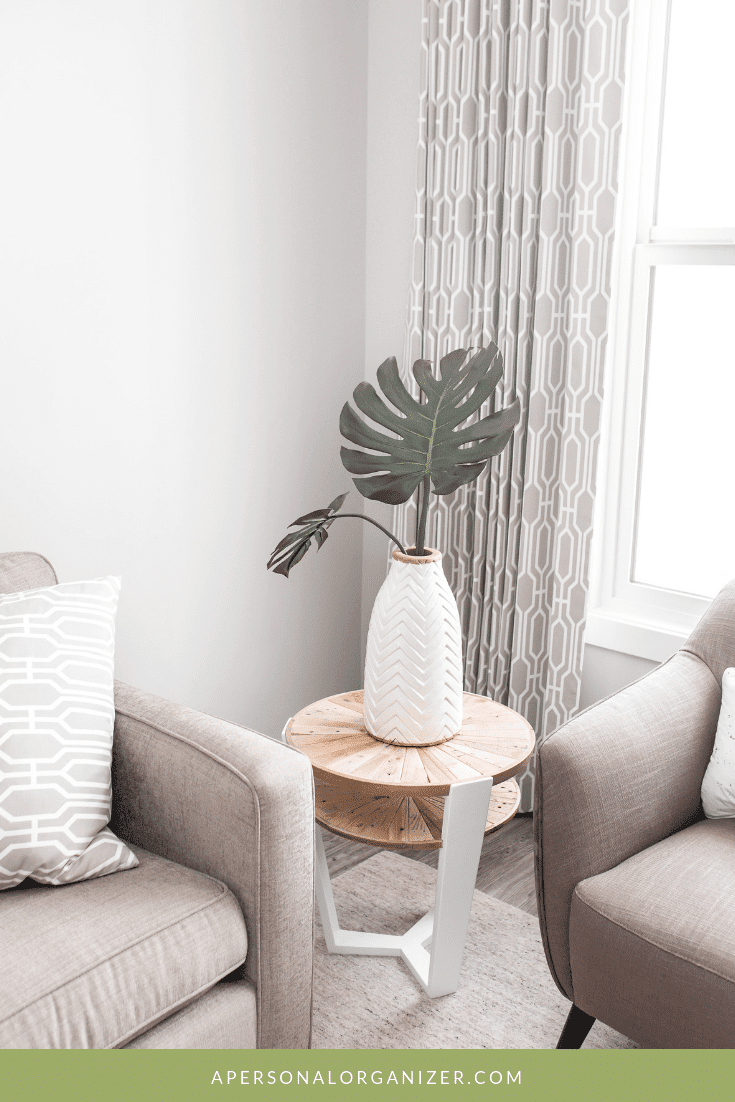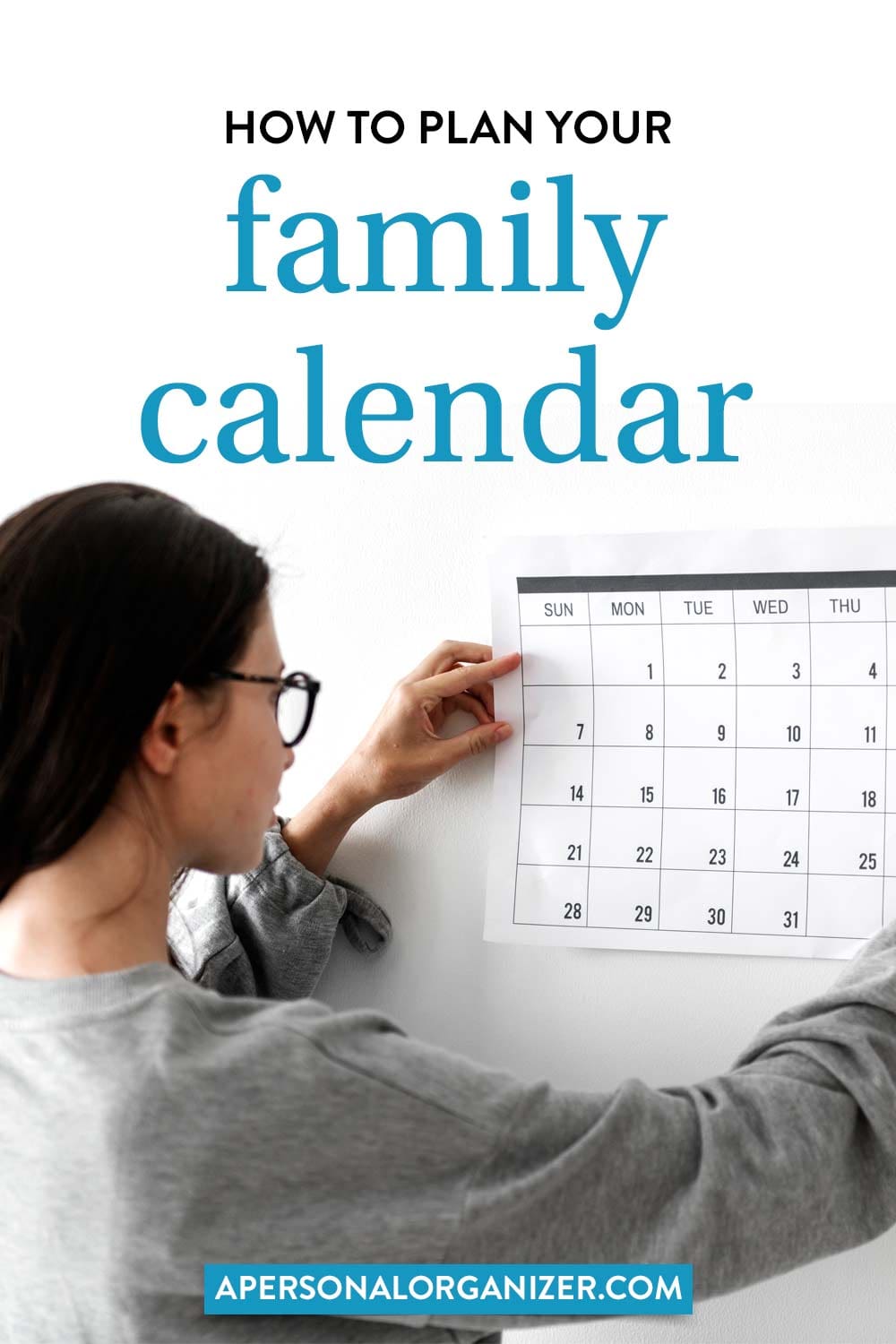How to Organize Kid’s School Papers
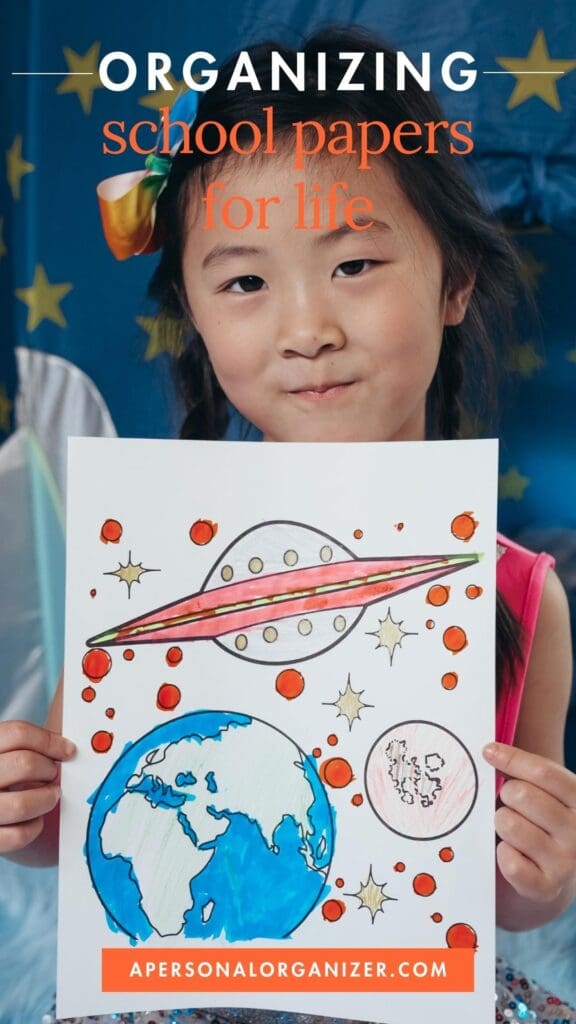
Getting a large influx of your kids’ school papers on top of your work and daily household schedule can be stressful. Especially since you will need to keep the ones with important information somewhere, you can find it again.
Now that my twin sons are freshmen in college and my younger son is in high school, I haven’t had to organize my children’s school papers for a while. However, I remember the overwhelming feeling of getting tons of papers at once and trying to make sure I didn’t lose the important ones.
The beginning of the school year is always the most challenging. You will be receiving all the welcome letters, general information about that school year, and different school supplies that will need to be purchased.
To help eliminate some of the stress that comes with back-to-school season, here are a few ideas for organizing kids’ school papers at home. si8bemol
1. Select and Create an Organization System
There are many excellent organizing ideas for school papers, including keeping a binder system, a portable filing bin, a wall storage system, or creating a digital folder on your desktop (if you have gone paperless). The best organizing system is the one that makes sense and will work for you.
At the end of the day, school paper organization should be a simple system to welcome and hold all the information you need during the school year and those special memories you want to keep.
Select the method that aligns best with your preferences when it comes to organizing paper and information. A way to identify your preferences is to look at how you currently organize yourself.
- Do you prefer a paper calendar over a digital one?
- Do you stack your papers and then check on them as needed, or do you transfer the information from papers to your planner?
- Do you keep a hanging file with file folders in a convenient place?
Whatever organizing method you decide to go with will generally have subcategories to organize your papers.
Some examples of possible school papers categories include:
- academic calendar
- upcoming events, like field trips, parent-teacher meetings, and open houses
- papers you need to sign and send back to school like permission slips
- graded assignments and important tests
- rosters and phone numbers
- paperwork for extracurricular activities such as sports, music, or art,
- awards, child’s school work, and special art projects you’d like to keep (check my video below!)
- school picture and photo books you might order
You can also keep an organizational spreadsheet such as the one I offer, including a checklist of school items you will need to purchase. It also has a schedule spreadsheet where you can keep track of each kid’s extracurricular activities and the important contact information of the coaches and carpooling contacts.
Of course, you can also create more categories or organize them to how you see fit, but I learned that the best part of having this process in place is that by the end of the year, your work will be almost done, and you won’t have to deal with an overwhelming pile of paper clutter.
Let’s check some organizing systems you can choose from to get the kids’ school papers organized.
Organizing School Papers With a Family Binder
In the family binder, you can have different tabs for each category you have decided to keep.
A family binder will make it easy for you to keep all of your kids’ school papers in one place, and the best thing about it is that it’s portable. Since storage space is more limited, it is an excellent way to curb your impulse to keep everything – I’m sure you know what I mean!
Since the pockets are smaller, it will force you to keep the binder more organized, and you will need to clean it out more often.
To create an organized binder, you will need a few items such as:
- A large, durable binder
- Binder dividers
- Sheet protectors to hold papers
- Sheet pockets to hold special papers
Organizing School Papers With a Portable File Box
A portable filing box works the same way as a family binder, except it provides more space for different papers as you will use a hanging folder for each category. This may be a better option if you have multiple children. Remember to keep this box in a central location for easy access to make sure you use it daily.
You can use different colors to identify each child or
Here’s what you’ll need for a portable filing bin:
- Portable filing bin that stores hanging files
- Hanging files for each category
- Tabs for each folder
I used magazine file holders – the upright ones – to organize our kids’ school paperwork. It was a simple file system, and I explained it in the video below.
Since these boxes were on the counter of my office, I kept them with a consistent look to match my office decor. I added their names on the front of the folder, and that was my filing system to organize our kids’ school paperwork.
Digitalizing and Organizing School Papers Online
Many schools have moved to digital communication with parents. This can make this already daunting task even more confusing since the information can be located in many places. It can also become confusing to remember where you saw the information or even how to access it. Digital communication could mean many emails lost in your inbox or pdf files and fliers posted in a portal.
To avoid missing important information, create a labeling system in your inbox to sort your emails into categories as soon as they enter your inbox. You can label each type individually as you would to a binder or have the entire category be for all school emails. That way, if you want to find a school-related email, you can simply type keywords into the search bar of the category, and it will come up.
If the schools use a portal, you can download the important files and keep them in a folder in the cloud. That way, all of the information will be in one place, and you won’t need to sort through different posts to find the specific pdf file.
Keep the Kids In the Process of Organizing School Papers

Important!
Whatever organizing system you decide to use, it is essential to get the kids involved and that all family members know what to do when the kids come from school and unload their backpacks.
Include unloading the bags and papers in your daily routine by sorting what can be recycled, what important dates need to be added to your family calendar, and place all art work, notes, and every piece of paper in their respective file boxes.
You’ll not only teach the children important organizing skills but also keep your home free of clutter and yourself sane!
Decide Which School Papers to Keep
When deciding which school papers to keep, think about whether it contains important information or will have sentimental value in the future. For example, you may want to hold artwork, certificates of achievement, or schoolwork that your child is particularly proud of. You could also keep assignments that earned good grades or reflect your child’s interests during the school year.
Most teachers also communicate the details of school events by sending school papers home with your child. You should keep important papers detailing the time and location of the open house, parent-teacher meetings, or fundraisers in the organizer to refer back to them when needed. This also includes school calendars that have information about holidays and school trips.
Other papers that you need to include in your organizer include permission slips or any papers that need to be signed and returned. These are more urgent, so checking the file every day is essential to ensure you have returned important documents.
Use your common sense when deciding which papers to keep. If you think you might need or want the paper in the future, keep it. But If there are events you will be unable to attend or have received papers about fundraisers you won’t participate in, feel free to throw them out. If you accidentally throw away important papers, you can always ask another parent for the information, email the teacher, or find the information online.
Choose a Spot for the Paper Organizer
Once your school organizer is ready to be used, you should select a spot for it. It is good to keep it somewhere everyone has access and this, and this makes it easy to go through the papers together. You should also make sure the organizer is easily accessible because it is likely that you will need to access it daily. Your kids will probably bring home around 3-5 school papers every day.
Where you decide to keep the organizer can also be dependent on how big of an organizer you choose to use. For example, if you have a family binder, you may be able to keep it on a kitchen counter or in the living room since it will be smaller than an entire filing bin. It may be better to keep a filing bin in a shoe closet or somewhere more hidden since it will take up a lot of room.
Regularly Clear Out the Paper Organizer
Even if you filed a paper as an important document a few weeks ago, it might become irrelevant once the event or school year has passed. You should regularly go through your papers and throw away any that are no longer necessary or important. Keeping this habit will help keep your organizer from becoming overly full. At the end of each school year, grab your recycling bin and remove and review everything, keeping only what you want to move to a long-term school memory box. Be ready to go down memory lane!
You can also remove special school memories at the end of the school year and place them in a separate envelope labeled with the school year/grade level. This clears the organizer and gets it ready for the next year of papers.
Sentimental Papers: Artwork
When the kids’ artwork comes home, display it in a temporary gallery for at least a week. After a week or when another masterpiece comes home, the old one should go either for recycling or to your keeper’s box.
If there is a piece of artwork that you think may be the best and most memorable for your child, or you in the future can remember the younger days of your child with this, save it immediately in long-term storage.
Once you have such an organized and integrated system, you will have a home free of paper clutter and be less likely to stress over school-related activities and paper management. As a bonus, instead of dealing with chaos and papers, you’ll be able to connect with your kids and enjoy a great time with them.

